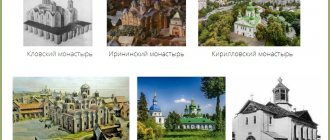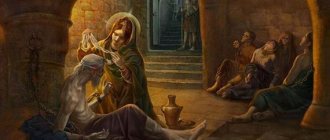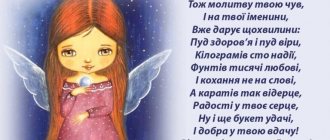It is no secret that a name determines not only a person’s character, but also predetermines fate. In this article, we invite you to find out everything connected with the name Anastasia: the meaning of the name, the character and fate of the girl named by it.
This name was quite common in ancient times. But now it has become less popular. Perhaps this is due to the seemingly simple sound of the name at first glance, influenced by some Russian fairy tales in which the main character was called Nastenka. Be that as it may, the name Anastasia is very beautiful and its owner is beautiful both inside and out.
The meaning of the name Anastasia, the fate and character that await its owner.
Origin of the name Anastasia
Like many common names in Russia, Anastasia is also not of Slavic origin. Its meaning comes from Greece. After the adoption of the Orthodox faith in Kievan Rus, like the Greeks, many of their church names were adopted. So, Yaroslav the Wise had a daughter, Anastasia.
The meaning of the name Anastasia in Greek (anastasis) is “reborn” or “returned to life.” The shortened form Anastas is interpreted as “Resurrection.” This is an Orthodox name.
Cheerful girl Anastasia
Match with patronymic
Alexandrovna, Alekseevna, Albertovna, Andreevna, Arturovna, Valentinovna, Vasilievna, Viktorovna, Vitalievna, Vladimirovna, Vladislavovna, Vyacheslavovna, Gennadievna, Germanovna, Glebovna, Grigorievna, Danilovna, Denisovna, Dmitrievna, Evgenievna, Egorovna, Igorevna, Kirillovna, Konstantinovna, Leoni Dovna, Maksimovna, Matveevna, Mikhailovna, Nikitichna, Nikolaevna, Olegovna, Pavlovna, Petrovna, Platonovna, Rodionovna, Romanovna, Ruslanovna, Semenovna, Sergeevna, Stanislavovna, Stepanovna, Timurovna, Fedorovna, Filippovna, Eduardovna, Yuryevna, Yaroslavovna, Yanovna, Yakovlevna.
Saints and patrons of the name Anastasia
The patron and guardian angel depends on the date of birth or baptism of the girl. You can determine the name day and spiritual protector using the Orthodox calendar. It happens that on this day Saint Anastasia is not commemorated. Then they look 3 days ahead from the date of birth/baptism.
Statue of Anastasia of Sirmium in the Philippines
List of spiritual patrons of female persons named Anastasia:
- Anastasia the Pattern Maker;
- Illyrian;
- Anastasia Patricia of Alexandria;
- Anastasia Romanina of Thessalonica;
- Anastasia Rimskaya.
Church meaning of the name Anastasia
The sound itself does not change in the Orthodox faith. In this form it is listed in the church name book. Therefore, when girls (girls) are baptized, the name does not change.
Renat can be baptized with this name. There is a version that such a name is interpreted similarly and carries the same meaning.
Choice of profession
Anastasia is not created to be a leader or develop her own business. In addition, she completely lacks ambition and practicality, and she has little interest in money. The business world brings disharmony into her own world, built on idealistic views and dreams.
Professions in which the owner of this wonderful name can realize herself are in one way or another connected with art and communication with people. Anastasia makes excellent psychologists, doctors, journalists, teachers, photographers and politicians.
Anastasia character
The meaning of the name Anastasia predetermines many character traits. But so far, it has not been possible to fully study all the parameters of women named by this fabulous name. But the main thing was revealed - such people are driven by kindness and responsiveness. Nastya is positive, no matter how you look at it. Self-interest, envy and meanness are not about them. Only for them themselves such a character often turns out to be a bad thing. People around us mistake good nature for weakness and sometimes take advantage of this for their own purposes, in particular men.
Assertive girl
Nasten is also characterized by self-will and persistence. True, each Anastasia manifests these qualities to varying degrees - it depends on upbringing, the influence of external factors (astrological symbols, environment).
Childhood
All sorts of incidental situations often happen to girls named Nastya. This is not due to the fact that the child is problematic, but is very active and curious. In kindergarten, Nasten is loved by the teachers, and at school - she is in a special place with the teachers. This is understandable, since the girl is never aggressive, always positive and good-natured.
Wayward girl Anastasia
Already from early childhood, Anastasia differs from her peers in the following features:
- kindness;
- gaiety;
- positivity;
- impulsiveness;
- gullibility;
- responsiveness;
- perseverance;
- dreaminess.
Nastya’s life is never boring or stable – it is filled with vivid impressions and unpredictable events. But there are no problems either. So, a girl sometimes experiences suffering due to the lack of close friends. Nastya has difficulty finding mutual understanding with her peers, which is due to her leadership inclinations and inflexibility in her beliefs. She does not accept the superiority of others.
Separately, it should be noted that Nastya has suffered from poor appetite since childhood. In this regard, they cause concern to parents and grandmothers. They also have to be forced to clean their room; they do not show any personal initiative. Even as an adult, Anastasia is not inclined to run a household.
Teenage years
Teenage Anastasia is a representative of the weaker sex in full understanding. She still remains a dreamer, completely immersed in romantic thoughts. He is a kind, sympathetic, compassionate and at the same time determined person. And all this gives her the meaning of her name.
Anastasia knows how to fantasize
The presented list of character traits is far from complete. It can be supplemented with the following manifestations:
- devotion;
- hard work;
- exemplary study;
- kindness;
- excessive gullibility and softness.
The latter can be considered a disadvantage, since it often leads to betrayal on the part of supposed friends. But Nastya will not hold a grudge for a long time, and forgives everything. She is also characterized by self-sacrifice, even to the detriment of her own interests.
Adult Nastya
Having matured, Anastasia does not change much in character. However, this is no longer that good-natured and forgiving girl (girl). She becomes a strong-willed woman who knows what she wants to achieve in life. Ready to move towards the goal, but not “over the heads” of other people. She remains true to her moral principles.
Due to this type of character, Nastya rarely achieves great heights in her career or becomes a successful business woman. Since her youth, she has set a high standard for herself, which is more related to her rich imagination. But in reality everything is much more complicated. Therefore, it is difficult for her to choose a profession that she would like and would not tire her too much. But she occupies a certain niche in society, which is facilitated by her natural charm and sociability.
Emotional girl Anastasia
Nastys do not tend to approach matters practically; they are more guided by emotions. She does not know how to save money and often changes her place of residence and type of activity. She has the opportunity to become famous, but she does not achieve this for the sake of enrichment. Such women desire admiration and admiration for their person from others. And her chosen one should worry about the material side - almost all of Nastya think so.
Nastya’s favorite hobby is plant growing and floristry. She loves to create something unusual and beautiful. She also enjoys embroidery, cutting and sewing. She makes original gifts herself and presents them to loved ones unexpectedly, without any reason.
Sexuality
Anastasia belongs to those happy women who are able to receive pleasure from sex - both physical and moral. She has a developed imagination, is open to experiments and knows how to give her partner true pleasure.
Nastya can voice her desires without hesitation, while at the same time listening carefully to her partner’s wishes. She gives him compliments, tenderness and warmth, but also demands the same from him. The partner must not only be affectionate and gentle, he must also be quite experienced - otherwise the woman will quickly lose interest in him.
Physical pleasure itself cannot fully satisfy Anastasia, since the spiritual component is very important to her. She needs to trust the person and feel his love and care - only then will she be able to open up and give her partner great pleasure.
Anastasia health
Little Nastya is not in good health - she often gets sick. A similar situation develops throughout life. They are susceptible to the following diseases:
- bronchitis;
- sore throat;
- laryngitis;
- varicose veins;
- deposition of salts in joints;
- gynecological.
The hardest time for Nastya is while carrying a child. Already poor vision worsens even more during this period. Therefore, I have to wear glasses all the time.
Anastasia may be depressed
Women with this name form are quite sensitive and vulnerable. The nervous system suffers from this. Therefore, they often become depressed. Doctors advise Anastasia to get plenty of rest, visit seaside resorts and breathe fresh air.
Compatibility and marriage of Anastasia
Anastasia quickly gets married and usually it turns out to be successful on the first try. Most likely the reason is hidden in the same meaning of the name, its positive energy. As a wife, she is the best and will try her best to make her husband happy.
Nasten makes respectable, caring, faithful wives. She will never commit betrayal and will make every effort to ensure that her husband is faithful to her. Anastasia’s only negative in terms of love (family) relationships is pathological jealousy, but not out of nowhere. They cannot hide their feelings and emotions, so it is better for the spouse not to tempt fate (not to give reasons for jealousy). Only because of the slightest suspicions and doubts can a marriage be destroyed on the initiative of a woman.
Jealous girl Anastasia
It is also difficult to find a better mother like Anastasia. After all, by nature they are sensitive, kind, caring and balanced women. But there is also a minus in this aspect. The fact is that Nastya does not punish their children so that they do not do anything wrong. So the role of a teacher is not for her. But she always caresses, envelops the child in tenderness and care (like a mother hen). I am ready to do anything to create comfortable conditions for my children. And it would be wiser to entrust the educational process to the father.
Compatibility of Alexandra with male names:
| Ideal for love, without legitimizing the relationship | Miron, Benedikt, Ostap, Maxim, Pavel, Eduard, Matvey |
| A strong marriage comes out with the following representatives | Boris, Osip, Ilya, Alexander, Gerasim, Evdokim |
| It's not even worth trying from a partner named | Philip, Trofim, Luka, Vlad, Albert, Vissarion |
Compatibility chart for Anastasia
In a couple, Anastasia will always try to control all moments and be a leader. This usually leads to a quick separation, since not every man can withstand such pressure from his partner.
Orthodox Life
On January 4, the Orthodox Church remembers the Holy Great Martyr Anastasia the Uzor-Resolver. Read about the history of one of the most popular female names in Russia and Saint Anastasia in our material.
The origin of the name “Anastasia” is associated with the ancient Greek language and translated means “resurrection”, “return to life”. There is also a paired male name with the same meaning, but it is not widespread in Russia.
The popularity of a female name is evidenced by Orthodox calendars. In the calendar of the Russian Orthodox Church we will meet 15 saints with this name, most of them (10 people) are martyrs. One Venerable Anastasia is the mother of Saint Sava of Serbia, one Alexandrian hermit, who, according to legend, lived in a monastery under the name Anastasia - a eunuch, one passion-bearer - the daughter of the last Russian Emperor Nicholas II, another nun and Saint Anastasia of Latria.
The list of saints with the paired male name Anastasius is no less impressive - it includes 20 Orthodox ascetics from different countries - from Egypt to Persia, Bulgaria and Russia.
Name Anastasia in different languages
The euphonious, sonorous name has long been loved not only in Russia, but also abroad. In Britain we will meet Stacy (Stacy), in Germany - Nastja, Anastasija (Anastasia), in France - Anastasi, Naste (Anastasi and Naste), in Slavic languages there are variations of our Anastasia. In general, “Nastya” was loved throughout Europe - from warm Greece to cold Russia. Anastasia can be found even in China or Korea.
Nastya, Nastenka and other abbreviated and diminutive forms of the name Anastasia
A rare Russian personal name can compete with Nastya in the variety of diminutive forms. Tasya, Stasya and even Asya - all these forms in the modern dictionary of personal names are associated with the familiar Nastenka, and there is also Anastasyushka, Anastaska, Nastasya, Nastya (Nasta), Nasya (Nasa), Nata, Naya, Nayusya, Nyusya, Nastena, Tyona, Nastya, Nastusya, Tusya, Nastyulya (Nastulya), Nastyunya (Nastunya), Nastyura, Styura, Nastyukha, Nastyusha, Nastyakha, Stasya, Tasya, Taya, Asya, Asyusha, Susha, Asyuta, Syuta. If a person needs to turn to some “Anastasia Ivanovna”, then it is worth remembering that this name has the same forms of genitive, dative and prepositional cases.
Male name Anastasy
A male name with the same ancient Greek root is not often found in Russia. Most people will only remember Anastas Mikoyan, a Soviet leader with a short form of the name "Anastasy".
Mikoyan is now most often talked about in connection with the meat processing plant of the same name. In the 30s, Anastas Ivanovich was the People's Commissar of the food industry and created Soviet fast food. In particular, it was not without his participation that the famous “Doctor’s” sausage and the infamous “fish days” in Soviet canteens were invented.
Few people know that Anastas Mikoyan studied in 1916 at the Theological Academy located in the Etchmiadzin Monastery.
In other countries, the male name Anastasius was more common, as evidenced by four Popes and two Byzantine emperors.
Pope Anastasius IV, who lived in the 12th century, went down in Church history as the bishop of Rome with one of the shortest tenures in the cathedra of the eternal city. He was Pope for a little more than one year - from July 12, 1153 to December 3, 1154, but during this time he transferred the relics of Saint Helen Equal to the Apostles - the mother of Constantine the Great was transferred to a modest shrine, and the luxurious antique sarcophagus, where the remains of the saint had previously been kept, he prepared for myself. In this sarcophagus he was buried in the crypt of St. Peter.
But among the female celebrities there was a sea of tennis player Myskina, Dostoevsky’s heroine Nastasya Filippovna, the woman hero Nastasya Mikulishna, the daughter of the last Russian Emperor Nicholas - this is just a short list of historical figures and literary characters with the name Anastasia. Anastasia was also the daughter of Prince Yaroslav the Wise of Kyiv - the Queen of Hungary. Her image can be found on the fresco of St. Sophia Cathedral in Kyiv. The fate of the queen herself was very difficult - she and her children had to flee from Hungary to Bavaria. One of her sons argued with Anastasia Yaroslavna and even raised his hand against her.
Name Nastya
In the new millennium you will rarely find a school, institute or work where there would not be a girl or girl Nastya. In 1978-1981, 31 babies out of a thousand were named Anastasia, and this name was only in 11th place. But then the rapid growth of popularity began:
In the 80s of the last century, Yuri Antonov sang “Anastasia”:
The distance of life opened wide to me, You appeared, more beautiful than spring. The birds in the sky chirp: “Nastya,” the grasses echo: “Anastasia.” Happy am I, conquered by the power of these cornflower-blue eyes. Lips whisper tenderly: “Nastya”, Heart echoes: “Anastasia”.
Since then, the popularity of the name has been constantly increasing.
In 2011, 53 out of a hundred newborn Muscovites were named Anastasia. Several times over the past 15 years, this name has come out on top in popularity. In 2013, she was second, losing the championship to Maria in Moscow.
Anastasia's birthday
Rarely the owners of the name can boast of such an abundance of patron saints. Nastya can celebrate name day on January 4, March 23, April 5, April 28, May 10, June 1, 5 and 9, July 4, July 17, August 10, November 11 and 12, December 17.
Saints named Anastasia
In the Orthodox calendar you can find at least fifteen saints with this name; let’s try to tell you a little about the most famous ascetics.
Among the ascetics with the name Anastasia, the first place in popularity will be the patron saint of prisoners - the holy great martyr Anastasia the Pattern. Her earliest life that has come down to us was compiled in the 6th century, so we know almost nothing about the life of this saint.
The Great Martyr Anastasia suffered in 304 during the cruel persecution of Emperor Diocletian. This was an emperor who wanted to save the crumbling Roman Empire. As the Christian writer Lactantius notes in his essay “On the Death of Persecutors,” persecution for faith was total: “All people, (without distinction) of gender and age, were driven to the stake; and there were so many of them that they were surrounded not individually, but in crowds, and were set on fire; the servants were drowned in the sea, with a millstone tied to each of their necks. . No less wild persecution affected the rest of the people, because the judges, scattered throughout all the temples, drove everyone to sacrifice... The dungeons were full, unheard-of types of torture were invented, and, no matter what case the trial was carried out, in secluded places and in front of the tribunal they were located altars, so that those involved in litigation first make sacrifices and, under such circumstances, speak out about their affairs.”
Anastasia fearlessly visited Roman prisons and helped the sufferers. After the death of her teacher, she traveled through the provinces of the Roman Empire, where persecution raged. She visited Greece and Macedonia, alleviated the suffering of prisoners - brothers in faith. She was soon captured and, as a Christian, sentenced to be burned at the stake.
The Great Martyr was widely revered in the West already in the 4th century. Her honest head was in the monastery of St. Anastasia near the Greek city of Thessaloniki, but on the night of April 22-23, 2012, unknown persons stole the relics of this ascetic.
Memorial Day of the Great Martyr Anastasia is January 4.
Anastasia the Roman or the Roman
In 250 or 256 in Rome, after prolonged torture, another martyr named Anastasia was beheaded. Becoming an orphan at the age of three, the noble girl was raised in a Christian community near the eternal city. She was very beautiful, and at the age of 20, rejected suitors handed her over to the mayor Prov. He demanded that she renounce Christ and marry some patrician. Anastasia refused, the enraged persecutor ordered her to be tortured naked in front of the crowd, but the saint continued to glorify the Savior and was eventually executed. Her body was found by local Christians and buried in the outskirts of Rome.
Memorial Day of Anastasia the Roman is November 11.
Anastasia Rimskaya
Apparently Rome had a special attraction for martyrs named Anastasia. After the sermon of the holy apostles Peter and Paul, one resident of the eternal city accepted the new faith. During Nero's persecution, Anastasia and her friend Vasilisa buried the bodies of dead Christians. After torture, she was beheaded as a Roman citizen in 68. (Roman citizens, as we can learn, for example, from the Acts of the Apostles, had a number of privileges: they could demand the trial of the emperor, so the Apostle Paul was taken to Rome, and he himself spent several years in prison awaiting trial. Roman citizens could not shameful executions were used (crucifixion or being eaten by wild animals in the arena), so they were executed with the sword.
The ancient historians Suetonius and Tacitus briefly report on the reasons for Nero’s persecution of Christians. The text of the latter in the XV book of the Annals connects the persecution of followers of the new faith with the great fire of Rome and the emperor’s desire to shift the blame to Christians: “So Nero, in order to overcome rumors, found the guilty and put to the most sophisticated executions those who, with their abominations, had brought upon themselves universal hatred and whom the crowd called Christians. Christ, from whose name this name comes, was executed under Tiberius by the procurator Pontius Pilate; suppressed for a while, this harmful superstition began to break out again, and not only in Judea, where this destruction came from, but also in Rome, where everything that is most vile and shameful flocks from everywhere and where it finds adherents. So, first those who openly admitted that they belonged to this sect were captured, and then, on their instructions, a great many others were caught not so much in the villainous arson as in hatred of the human race. Their killing was accompanied by mockery, for they were dressed in the skins of wild animals so that they could be torn to death by dogs, crucified on crosses, or those doomed to death by fire were set on fire at nightfall for the sake of night illumination. Nero provided his gardens for this spectacle; At the same time, he gave a performance at the circus, during which he sat among the crowd dressed as a charioteer or drove a team, participating in a chariot race. And although the Christians were guilty and they deserved the most severe punishment, yet these cruelties aroused compassion for them, for it seemed that they were being exterminated not for the sake of public benefit, but as a result of the bloodthirstiness of Nero alone.”
The relics of the holy martyr Anastasia are in Rome.
Memorial Day for Anastasia Rimskaya is April 28.
Anastasia Romanova
The youngest daughter of the last Russian Emperor Nicholas II was born on June 18, 1901. She was the fourth child in the family and was educated at home from the age of 8. The curriculum included French, English and German, history, geography, the Law of God, natural sciences, drawing, grammar, arithmetic, as well as dance and music.
Anastasia Nikolaevna did not like grammar, wrote with many errors, and called arithmetic “beastly.” At the same time, Anastasia had a very kind character - she loved pets, adored candies and sweets and willingly shared them with others.
Anastasia’s teachers said that the girl had an easy character. She loved to play hide and seek, lapta, and serso (a game in which you need to throw rings onto a peg). She willingly climbed trees, loved to weave flowers into her hair, and was tenderly attached to her brother Alexei, spending whole days with him during attacks of his illness.
Growing up, during the First World War in a hospital, she gave concerts for the wounded and helped her sisters and mother in their ministry as Sisters of Mercy.
Together with the rest of the royal martyrs, she was shot in the basement of the Ipatiev House on the night of July 16-17, 1918.
St. Anastasia's Memorial Day is celebrated on July 17 along with other members of the royal family.
The legend of the rescue of Anastasia Romanova
After the execution of the royal family, the story of the miraculous rescue of Nicholas II’s youngest children, Anastasia and Alexei, became widespread. The most famous false Anastasia was Anna Anderson, who claimed that she was saved by a soldier with the musical surname Tchaikovsky. The impostor was quickly exposed, and the final point in this matter was put to two genetic examinations carried out in 1995 and 2011
Icons of Anastasia
On the icons of saints you can often find objects associated with their feat.
The Great Martyr Anastasia the Pattern-Resolver is depicted with a cross (a symbol of martyrdom) and a bottle of medicinal oil, with which she alleviated the suffering of prisoners.
Anastasia the Roman is often dressed in monastic robes as a symbol of chastity.
The iconography of Saint Anastasia Romanova is distinguished by some portrait similarities. The saint holds a cross in her hands as a symbol of suffering. On the most common icon of the royal martyrs, on Anastasia’s head you can see a crown or diadem as a symbol of the royal
authorities.
THOMAS









